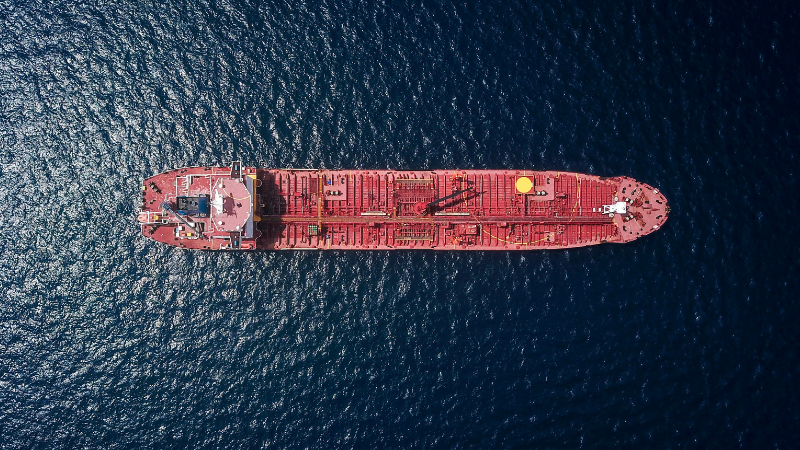A new investigation by international NGO Global Witness has found that shipping companies in Malta, Greece and Cyprus have almost doubled their shipments of Russian oil since Russia’s invasion of Ukraine in February.
This, while European Union leaders have pushed to block Russia’s exports from the global market, deciding on Tuesday on a watered-down embargo on Russian oil.
Findings of the report, published in the UK by The Independent on Sunday, show that shipping firms based in the three countries had “taken advantage of big jumps in rates for tanker cargos” and campaigners have said that EU-based shipping firms have made a “mockery” out of plans to sanction Russia.
Global Witness’ report analysing shipping data by Refinitiv, an American-British global provider of financial market data, shows that the three countries have increased the amount of Russian oil they were transporting each month since the war began.
The report shows that shipments have actually increased cash flow to the Russian government by billions of dollars in oil revenue, providing vital funds for Russia’s brutal war.
While some companies have sought to publicly distance themselves from such Russian industries, others have stepped in to fill the breach, the report says.
In February, when Putin’s troops invaded Ukraine, companies and vessels linked to the three countries shifted 31 million barrels of Russian oil. In May, that figure had jumped to 58 million barrels. In total, ships linked to Greece, Malta and Cyprus have transported 178 million barrels, worth $17.3bn (€16.10bn) at current prices for Russian crude, since February, the article states. At the start of the war, ships linked to these countries carried a little over a third of the oil exports from Russian ports. By May, that figure had jumped to just over half.
According to The Independent, the sharp rise in oil prices has caused the Kremlin to experience a “huge boost” to its finances, even registering a record current account surplus in April.
Louis Goddard, the senior data investigations adviser at Global Witness told the newspaper that ships linked to Greece, Cyprus and Malta are making a mockery of the EU effort to sanction Putin’s war machine. He said that in order to close this “gaping loophole”, the EU must “stand firm” against lobbying from all member states with vested interests in the Russian oil trade, as well as put restrictions on shipping at the heart of its sanctions regime.
While there is no suggestion that the companies had violated sanctions or broken the law, the findings raise questions about the effectiveness of international efforts to financially squeeze Putin’s regime and bring an end to the invasion.
Malta’s efforts in this regard have been put into question numerous times over the past few months. In March, the Maltese government remained defiant against ceasing passport sales to Russian citizens. Malta had also hesitated to ban the transport of Russian oil, even having sought a concession to protect its own interests in the maritime sector.
In an address to the Maltese Parliament in May, Ukrainian President Volodymyr Zelensky told Malta to not allow itself to be abused by Russia and to stop allowing privileges to Russian nationals.
“I know that for you and for other European countries, this is a very sensitive topic because the vessels under your flag are also used to transport Russian oil, but each euro, each dollar, that you earn will be accompanied by big losses if you cannot stop the food and migration crises,” he said.
European Commission’s ban on Russian crude oil
On Monday, the European Commission announced its plan to ban seaborne imports of Russian oil into the trading bloc, starting “immediately” and banning some “90% of Russian oil imports by the end of the year,” according to Commission leaders.
Russian oil will continue to flow into Europe via a pipeline through Hungary, and after lobbying from shipping interests in Greece, Malta and Cyprus, EU-registered boats and companies will be allowed to continue moving oil from Russian ports to non-EU countries, meaning EU companies will continue to profit from facilitating transfers of Russian oil to countries such as India and China, the UK’s Independent said.
Experts and campaigners warned that the failure of European leaders to stop EU-controlled ships carrying Russia’s cargo would leave a gaping hole in the partial embargo.













Joseph Muscat was called the dodger of the EU, and our country, thanks to him and his successor, has become looked at, and rightly so, as the European State prostitute.
Wasn’t there a revocation for insurance for tankers carrying Russian products including oil?
If this is correct, what would happen, God forbid, if there was an accident to any oil carrying tanker from Russia. Who would pay for the environmental catastrophy.
Double faced PM Abela! Is this neutrality?